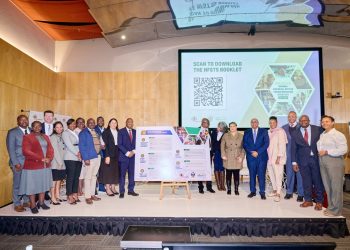
The Agricultural Bank of Namibia (Agribank) disbursed N$74.3 million in loans during the first quarter of the 2023/24 financial year, a spike of 40% when compared to N$46.9 million expended in 2022.
The agro-lender said the increase in loans was mainly driven by triple-digit growth in farmland and livestock.
“In addition to the farmland and livestock loans, impressive growth was also noted under the crop sector, mainly propelled by crop production loans to irrigation farmers, specifically in the Otjozondjupa region,” the Bank’s Public Relations Officer Fillemon Nangonya said.Â
Nangonya emphasised Agribank’s commitment to ensuring inclusive development by empowering smallholder and large commercial farmers through access to tailored agricultural loans, training as well as advisory services.
“This supports the Bank’s strategy of loan book diversification. Loan distribution by gender and age categories shows that males continue to dominate the loans advanced, accounting for 59% in the 1Q2023/24 compared to 46% in the corresponding quarter in the 2022/23 financial year. Loans advanced to females accounted for 18% in 1Q2023/24, which is a decline when compared to 30% in the corresponding quarter in the 2022/23 financial year,” he said.Â
In addition, groups and companies accounted for 23% of loans, which include males and females.
“In terms of loans advanced by age, 35% of the loans were taken up by individual farmers under the age category of 31-40 years. This demonstrates the Bank’s efforts to deliver on its socio-economic mandate through targeted and special financing solutions to attract participation of women and youth in the agriculture sector,” said Nangonya.
It is further noted that private sector credit extension picked up with a market share of 46% compared to 45% in the prior year, attaching the increase to the competitive loan terms offered by Agribank, amid a rising interest rate environment.
“As a national development finance institution, Agribank will continue to play a catalyst role in addressing key national development issues such as food security, poverty reduction, and employment creation within the agriculture space,” he said.











